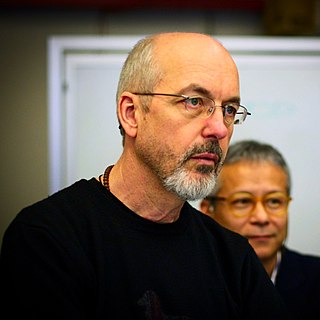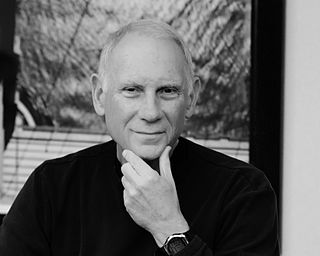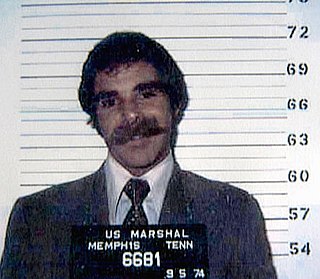Top 280 Analogy Quotes & Sayings - Page 5
Explore popular Analogy quotes.
Last updated on April 19, 2025.
I have made some headway in addressing these questions, however, and succeeded in explaining how it is that the category of knowledge might play an important role in empirical theories. To the extent that talk of knowledge can be shown to play an explanatory role in such theories, the analogy I wish to make with paradigm natural kinds such as acids and aluminum starts to make a good deal of sense. This is, of course, connected with the issue of the role of intuitions in philosophy.
We can learn from history how past generations thought and acted, how they responded to the demands of their time and how they solved their problems. We can learn by analogy, not by example, for our circumstances will always be different than theirs were. The main thing history can teach us is that human actions have consequences and that certain choices, once made, cannot be undone. They foreclose the possibility of making other choices and thus they determine future events.
Exercise is very important, first of all if you think about it, especially in a long flight like a six month space flight and on the ISS. If you didn't exercise and used the analogy on earth, it would be like laying in bed. So, just imagine laying in bed for several months, and even just trying to get up and walk, you probably wouldn't be able to. But if you got up and you exercised two hours a day, you'd probably be okay, and that's the same in space.
I think that metaphor really is a key to explaining thought and language. The human mind comes equipped with an ability to penetrate the cladding of sensory appearance and discern the abstract construction underneath - not always on demand, and not infallibly, but often enough and insightfully enough to shape the human condition. Our powers of analogy allow us to apply ancient neural structures to newfound subject matter, to discover hidden laws and systems in nature, and not least, to amplify the expressive power of language itself.
Let me go back to a comfortable analogy for me - sports... basketball. I use it because you're naive if you don't see the national full-court press picking away right now: A good point guard drives through a full court press, protecting the ball, keeping her eye on the basket... and she knows exactly when to pass the ball so that the team can WIN.
For any true stickler, you see, the sight of the plural word “Book’s” with an apostrophe in it will trigger a ghastly private emotional process similar to the stages of bereavement, though greatly accelerated. First there is shock. Within seconds, shock gives way to disbelief, disbelief to pain, and pain to anger. Finally (and this is where the analogy breaks down), anger gives way to a righteous urge to perpetrate an act of criminal damage with the aid of a permanent marker.
We never ask candidates to demonstrate their skill. We ask lots of questions about past experience, but simply looking at the results of their decisions does not let us understand the process that they used to make the choice in the first place. A good analogy is sports. If you wanted to know how well a person plays basketball, for example, you could look at statistics like shooting percentage or blocked shots. But, this is just an historical account of how well the individual played in the past - the numbers do not tell us much about how that individual plays basketball now.
But, did the Divinity [of Christ] suffer? [...] The holy fathers explained this point through the aforementioned clear example of the red-hot iron, it is the analogy equated for the Divine Nature which became united with the human nature. They explained that when the blacksmith strikes the red-hot iron, the hammer is actually striking both the iron and the fire united with it. The iron alone bends (suffers) whilst the fire is untouched though it bends with the iron.
Here's the analogy. If my body were a car, I'd be thinking about trading it in around now. I would like to upgrade. I would be actually on the lot somewhere and some guy with a loud sports jacket would be sizing me up...kinda lookin' around goin--maybe kickin my knees. Looking behind me going: That looks a little bashed in back there...Yeah. You mind if I check under the hood?" 'Well yes I do! Thank you very much.
You could make an analogy to a security guard who, three weeks prior, was mowing lawns for a living. The second he puts a uniform on and that badge, he's a man. I imagine the majority of us have felt the wrath of the over-zealous security guard guy. Is there something lying dormant in the man, that's waiting to be pumped up with that kind of power? I don't know. Does it reveal him? I don't know. Does it change him? I don't know.
The words you can't find, you borrow.
We read to know we're not alone. We read because we are alone. We read and we are not alone. We are not alone.
My life is in these books, he wants to tell her. Read these and know my heart.
We are not quite novels.
The analogy he is looking for is almost there.
We are not quite short stories. At this point, his life is seeming closest to that.
In the end, we are collected works.
A good analogy [Charlie Hebdo] in lots of ways is "South Park" - the hugely popular American cartoon show - and the things that the "South Park" creators have created, like "The Book Of Mormon," the Broadway musical. If I were a devout Mormon, I would be offended by a lot of things that go on in "The Book Of Mormon," right? It mocks mercilessly the pretensions to truth of Mormonism and the pretensions to virtue of Mormon missionaries.
If we have dwelled on Godel's work at some length, is it because we see it in the mathematical analogy of what we would call the the ultimate paradox of man's existence. Man is ultimately subject and object of his quest. While the question whether the mind can be considered to be anything like a formalized system, as defined in the preceding paragraph, is probably unanswerable, his quest for an understanding of the meaning of his existence is an attempt at formalization.
In the yoga sutras, they have this beautiful analogy that the journey of life is like the flight of an eagle, or the journey over multiple lifetimes is like a flight of an eagle. First, the eagle stretches its wings high, high, high, and experiences everything that the world has to offer in terms of flight. It's growing and flying and it's experiencing, and then it brings its wings down gracefully and that is the completion of the journey.
The formation of the life of a person in the womb is the work of God, and it is not merely a mechanical process but a work on the analogy of weaving or knitting: "Thou didst knit me together in my mother's womb" (psalm 139:13). The life of the unborn is the knitting of God, and what He is knitting is a human being in His own image, unlike any other creature in the universe... The destruction of conceived human life - whether embryonic, fetal, or viable - is an assault on the unique person-forming work of God.
To draw an analogy: a man's suffering is similar to the behavior of a gas. If a certain quantity of gas is pumped into an empty chamber, it will fill the chamber completely and evenly, no matter how big the chamber. Thus suffering completely fills the human soul and conscious mind, no matter whether the suffering is great or little. Therefore the "size" of human suffering is absolutely relative.
For a ridiculous analogy, let's take Purple Rain. If you were to put Purple Rain and The Sound of Music on the desk of a producer, he or she would know that the majority of moviegoers would rather listen to Prince. Since they are in the business of making money, no one can blame them. But if it ever came to the decision of making a film like that I'd say, "No." They are very easy films to make, though. In Purple Rain there is nothing complex about the way that they dance. Or sing. It would be a bit boring for an adult to make that film. It just wouldn't test their métier.
A man fishes for two reasons: he’s either sport fishing or fishing to eat, which means he’s either going to try to catch the biggest fish he can, take a picture of it, admire it with his buddies and toss it back to sea, or he’s going to take that fish on home, scale it, fillet it, toss it in some cornmeal, fry it up, and put it on his plate. This, I think, is a great analogy for how men seek out women.
The analogy between the mind and a computer fails for many reasons. The brain is constructed by principles that assure diversity and degeneracy. Unlike a computer, it has no replicative memory. It is historical and value driven. It forms categories by internal criteria and by constraints acting at many scales, not by means of a syntactically constructed program. The world with which the brain interacts is not unequivocally made up of classical categories.
Natural science is founded on minute critical views of the general order of events taking place upon our globe, corrected, enlarged, or exalted by experiments, in which the agents concerned are placed under new circumstances, and their diversified properties separately examined. The body of natural science, then, consists of facts; is analogy,-the relation of resemblance of facts by which its different parts are connected, arranged, and employed, either for popular use, or for new speculative improvements.
The whole analogy of natural operations furnishes so complete and crushing an argument against the intervention of any but what are termed secondary causes, in the production of all the phenomena of the universe; that, in view of the intimate relations between Man and the rest of the living world; and between the forces exerted by the latter and all other forces, I can see no excuse for doubting that all are co-ordinated terms of Nature's great progression, from the formless to the formed from the inorganic to the organic from blind force to conscious intellect and will.
It is natural to men to judge of things less known, by some similitude they observe, or think they observe, between them and things more familiar or better known. In many cases, we have no better way of judging. And, where the things compared have really a great similitude in their nature, when there is reason to think that they are subject to the same laws, there may be a considerable degree of probability in conclusions drawn from analogy.
Our task is not to find the maximum amount of content in a work of art, mush less to squeeze more content out of the work than is already there. Our task is to cut back on content so we can see the thing at all. The aim of all commentary on art now should be to make works of art - and, by analogy, our own experience - more, rather than less, real to us.
My main qualm about TV criticism has been when people review TV the way they review movies. They watch the pilot, and write a definitive review of the show. The obvious analogy is that you don't read the first eight pages of a book and then talk about whether the book works or not. People want so desperately in this day and age to declare something thumbs-up or thumbs-down that they declare it immediately.
Most people lose money because of lack of emotional discipline -the ability to keep their emotions removed from investment decisions. Dieting provides an apt analogy. Most people have the necessary knowledge to lose weight-that is they know that in order to lose weight you have to exercise and cut your intake of fats. However, despite this widespread knowledge, the vast majority of people who attempt to lose weight are unsuccessful. Why? Because they lack the emotional discipline.
You see, cuckoos are parasites. They lay their eggs in other birds' nests. When the egg hatches, the baby cuckoo pushes the other baby birds out of the nest. The poor parent birds work themselves to death trying to find enough food to feed the enormous cuckoo child who has murdered their babies and taken their places." "Enormous?" said Jace. "Did you just call me fat?" "It was an analogy." "I am not fat.
I always give the analogy of the Earth at Night picture, of 7.3 billion of us, right? And everyone says, "Well, that's population." Well, if you took the entire world's population and you lived at the density of Manhattan proper - not a bad place to live - how much space do 7.3 billion people take up? The state of Colorado. At which point I end my lectures, because I want you to be thinking ... is this really a question of population, or is this a question of land use and resource consumption? And let's face it, the top 1.3 billion of us are doing all the damage. Sorry.
God has made us humans in God's own image. So therefore the highest way to talk about God is by some kind of analogy with ourselves. So, naturally, if we who are finite and sinful suffer in multiple ways because of sin and evil and the horrible things that happen in our world, how much more does God, who is infinite, sinless, and knows the totality of all that happens to everybody, suffer pain and heartache at the suffering of his human and non-human creation - and be angry at all that causes it?
People (a group that in my opinion has always attracted an undue amount of attention) have often been likened to snowflakes. This analogy is meant to suggest that each is unique - no two alike. This is quite patently not the case. People, even at the current rate of inflation - in fact, people especially at the current rate of inflation - are quite simply a dime a dozen. And, I hasten to add, their only similarity to snowflakes resides in their invariably and lamentable tendency to turn, after a few warm days, to slush.
The late British-born philosopher Alan Watts, in one of his wonderful lectures on eastern philosophy, used this analogy: "If I draw a circle, most people, when asked what I have drawn, will say I have drawn a circle or a disc, or a ball. Very few people will say I've drawn a hole in the wall, because most people think of the inside first, rather than thinking of the outside. But actually these two sides go together--you cannot have what is 'in here' unless you have what is out there.' " In other words, where we are is vital to who we are.
For the Persian poet Rumi, each human life is analogous to a bowl floating on the surface of an infinite ocean. As it moves along, it is slowly filling with the water around it. That's a metaphor for the acquisition of knowledge. When the water in the bowl finally reaches the same level as the water outside, there is no longer any need for the container, and it drops away as the inner water merges with the outside water. We call this the moment of death. That analogy returns to me over and over as a metaphor for ourselves.
These various forms appear different in shape and size, yet they are of a single essence. . . . The Sixth Patriarch called it "essence of Mind". . . Here the Third Patriarch calls it "timeless Self-essence." Bankei called it "unborn Buddha-mind." They all refer to the same thing: Buddha-nature, true self. This essence is not born and can never die. It exists eternally. Some call it energy; others call it spirit. But what is it? No one knows. Any concept we have of what it is can only be an analogy. . . .
You have so much going on. It comes off like a..." "Static?" I suggested. "Exactly!" He snapped his fingers and pointed at me. "You need to tune it, get your frequencies in check, like a radio." "I would love to.Just tell me how." "It's not a matter of turning a dial. You have no on or off switch." He walked around in a large lazy circle. "It's something you have to practice. It's more like being potty-trained. You have to learn when to hold it and when to release." "That's a pretty sexy analogy," I said.
This fear bears no analogy to any fear I knew before. This is the basest of all possible emotions, the feeling that was with us before we existed, before this building existed, before the earth existed. This is the fear that made fish crawl out onto dry land and evolve lungs, the fear that teaches us to run, the fear that makes us bury our dead.
In my photographic work I'm generally attracted to places that contain memories, history, atmospheres and stories. I'm interested in the places where people have lived, worked and played. I look for traces of the past, visual fingerprints, evidence of activities - they fire my imagination and connect into my own personal experiences. Using the analogy of the theater, I would say that I like to photograph the empty stage, before or after the performance, even in between acts. I love the atmosphere of anticipation, the feeling in the air that events have happened, or will happen soon.
Since I found that one could make a case shadow from a three-dimensional thing, any object whatsoever - just as the projecting of the sun on the earth makes two dimensions - I thought that by simple intellectual analogy, the fourth dimension could project an object of three dimensions, or, to put it another way, any three-dimensional object, which we see dispassionately, is a projection of something four-dimensional, something we are not familiar with.
There are just a host of problems born by the electronic age. Things we couldn't even conceive of. I was amused by the analogy that Justice Scalia made in a case about a GPS tracker so you don't know that's being done to your car, is that a violation of your right to protection against unreasonable searches and seizures. So Justice Scalia imagines a constable clinging to the bottom of a carriage as it went on its way, so there was some notion that this similar: there is an official eye that's on you, but you don't know about it. Yes, there are all kinds of challenges.
Everything has to be intrinsic plot-wise in the same way, to use the Linda Williams analogy but to move it on a bit, as musicals - in old musicals, like in an old Cole Porter musical, you get the action, then they do a song, which reflects a moment - everything stops while that is being sung - and then you restart. These days in most musicals, the plot keeps moving through the song. I think it would be nice if someone constructed some pornography where the sex continues to propel you through the story.
Basically, the prosecutor who led case against me and that administration were trying to say that an actor can be held responsible for his acting, thousands of miles away from where he did the acting. The analogy would be if an artist painted a nude painting in New York City, and it was met with accolades and great reviews. And suddenly, somebody from Texas bought it and put it in their shoe store and it was found to be obscene in Texas, the artist in New York is responsible, and goes to jail because it's obscene in Texas.
Turbulence is a condition that we all experience during a flight when the plane is bouncing around by competing air currents. By analogy, the economy may bounce around a lot because of competing currents of public moods and investments. One week everyone might be optimistic and then suddenly something happens to turn everyone into pessimists. Investment dries up and investors become risk averse. A sudden piece of good news then turns around the public mood.







































